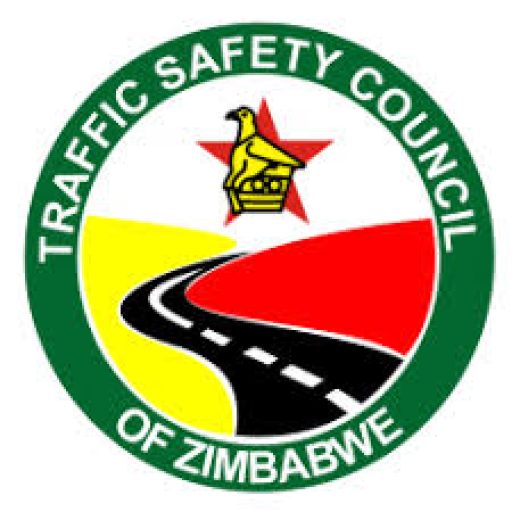Road Safety and Commercial Drivers: Ensuring Safer Transportation and Logistics

Road safety is a critical aspect of the transportation and logistics industry in Zimbabwe. Commercial drivers play a vital role in transporting goods and people across the country, and their commitment to safe driving practices is essential for preventing accidents, injuries, and even fatalities on the roads. A commercial driver is an individual who operates a motor vehicle as part of their occupation or employment, primarily for the purpose of transporting goods, passengers, or both, in exchange for compensation. Commercial drivers work in various industries and sectors, including trucking and logistics, public transportation, delivery services, as well as taxi services. They are typically required to hold specific licenses, and or certifications based on the type of vehicle they operate and the nature of their work. Commercial drivers are responsible for safely operating their vehicles, adhering to traffic regulations, and ensuring the well-being and satisfaction of their passengers or the timely delivery of goods. In this article, we will highlight the importance of road safety to commercial drivers and emphasize the significance of defensive driver training in enhancing safety within the transportation and logistics industry.
Importance of Road Safety to Commercial Drivers:
Protecting Lives and Preventing Injuries: Commercial drivers have a responsibility to prioritize the safety of themselves, their passengers and or goods, and other road users. These drivers spend a significant amount of time on the road, exposing themselves to various risks and hazards. Prioritizing road safety helps ensure their own well-being and reduces the likelihood of accidents, injuries, or fatalities. Adhering to road safety practices, enables commercial drivers to protect themselves and their livelihood. Additionally, adhering to road safety guidelines reduces the risk of accidents, injuries, and fatalities, ensuring everyone arrives safely at their destinations.
Heavy Trucks and Negotiating Corners or Roundabouts:
Heavy trucks, such as articulated trucks or those with one or more trailers, need to exercise caution when negotiating corners or roundabouts to avoid potentially dangerous situations where they may squash or drag other cars. Due to their size and weight, these trucks have a wider turning radius and require more space to manoeuvre. It is crucial for commercial drivers operating heavy trucks to be aware of the limitations of their vehicles and take necessary precautions.
Trucks Carrying Fuel or Hazardous and Chemical Products:
Trucks transporting fuel, hazardous materials, or chemical products have an additional responsibility to maintain road safety standards, especially in the event of spillages or accidents. These substances pose potential risks to human health, livestock, the environment, and infrastructure. To ensure the safe transportation of such materials, commercial drivers of these trucks must adhere to specific regulations and safety protocols. In fact, commercial drivers must comply with strict regulations governing the transportation of fuel, hazardous substances, and chemicals. This includes obtaining the necessary certifications, licenses, and permits required by regulatory authorities. Drivers should also be knowledgeable about handling emergency situations and know how to respond appropriately in case of spillages or leaks.
Many commercial drivers are responsible for transporting passengers, whether as part of public transportation, taxi services, or private charter. The safety and well-being of these passengers should be a top priority. Implementing road safety measures such as defensive driving techniques, following traffic regulations, and maintaining tip-top vehicle conditions can significantly reduce the chances of accidents and protect the lives of passengers.
Preserving Organizational Reputation: Commercial drivers often represent their companies or organizations while on the road. Safe driving practices reflect positively on their professionalism, reliability, and commitment to providing a secure and trustworthy service. Conversely, involvement in accidents or unsafe driving behavior can tarnish their reputation and lead to the loss of customers or business opportunities. Safe driving practices contribute to a positive image for transportation and logistics companies. Preventing accidents and associated damages, goes a long way in helping companies maintain their reputation for reliability and professionalism.
Cost Savings: Road accidents result in financial burdens, including medical expenses, vehicle repairs, sometimes legal fees as well as loss of income due to vehicle running downtime. Promoting road safety, helps commercial drivers reduce these costs for themselves and their employers.
Compliance With Regulations: Commercial drivers must comply with national and industry-specific regulations related to road safety. Adhering to these regulations helps commercial drivers avoid penalties, fines, and potential loss of licensing or employment. Compliance with road safety regulations is not only essential for personal safety but also a legal requirement. Commercial drivers must adhere to traffic laws, licensing requirements, and vehicle maintenance standards, thus avoiding legal penalties, fines, or even license suspensions, which can have severe repercussions on their employment and livelihood.
The Defensive Driving Course:
The Traffic Safety Council of Zimbabwe (TSCZ) offers a Defensive Driving Course (DDC). The course is compulsory for all Public Service Vehicle (PSV) drivers and highly recommended for all drivers. DDC training provides drivers with essential skills and knowledge to navigate challenging road conditions and unforeseen hazards. The importance of this course in the transportation and logistics industry can be summarized as follows:
Enhanced Hazard Perception: Defensive driver training sharpens drivers’ ability to identify potential hazards on the road, such as reckless drivers, pedestrians, and adverse weather conditions. It equips drivers with the skills to anticipate and react appropriately to these hazards, reducing the likelihood of accidents.
Improved Decision Making: The course emphasizes critical decision-making skills, enabling drivers to make informed choices in challenging situations. It teaches drivers to assess risks, prioritize safety, and choose appropriate actions, contributing to safer transportation practices.
Developing Proactive Driving Habits: Defensive driving promotes the adoption of proactive driving habits, such as maintaining appropriate following distances, adhering to speed limits, and avoiding distractions. These habits minimize the risk of collisions and improve overall road safety.
Managing Emergency Situations: The course equips drivers with techniques to handle emergency situations effectively, such as skid control, emergency braking, and evasive manoeuvres. These skills are invaluable in preventing accidents and minimizing the severity of potential collisions.
Promoting road safety among commercial drivers is crucial for ensuring safer transportation and logistics operations in Zimbabwe. Upon understanding the importance of road safety and embracing defensive driver training, commercial drivers can actively contribute to reducing accidents, protecting lives, preserving company reputation, and complying with regulations. The TSCZ’s DCC training provides drivers with essential skills to navigate challenging road conditions, make informed decisions, develop proactive driving habits, and manage emergency situations effectively. Encouraging all commercial drivers to undertake this course is a step towards fostering a culture of road safety within the transportation and logistics industry. Commercial drivers can play a significant role in making Zimbabwe’s roads safer for everyone by prioritizing road safety and adopting defensive driving principles.
#Professionalism on Wheels, Safety at the Core.


